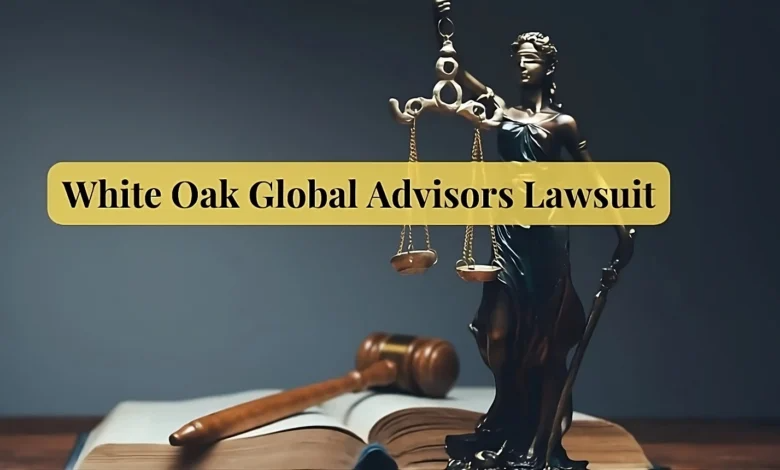Behind the Scenes of the White Oak Global Advisors Lawsuit

Introduction
The White Oak Global Advisors lawsuit has gained significant attention due to the allegations of fiduciary misconduct related to pension fund management. At the core of the case are claims of self-dealing and a failure to uphold fiduciary responsibilities, leading to substantial financial losses for the New York State Nurses Association Pension Plan (NYSNAPP). This lawsuit resulted in a historic $140 million settlement, marking one of the largest penalties for breaches under the Employee Retirement Income Security Act (ERISA). This article delves into the background, key aspects, and industry-wide implications of the White Oak Global Advisors lawsuit, providing insights into fiduciary misconduct and its consequences.
Background of the White Oak Global Advisors Lawsuit
What is White Oak Global Advisors?
White Oak Global Advisors is a financial services firm specializing in private credit and investment products. Known for its innovative approach to asset management, the firm has built a reputation for serving institutional clients, including pension funds. However, the White Oak Global Advisors lawsuit has brought this reputation into question, highlighting the challenges of maintaining ethical and fiduciary standards in financial governance.
Relationship with NYSNAPP
The New York State Nurses Association Pension Plan (NYSNAPP) is a defined benefit pension plan offering retirement benefits to thousands of nurses. White Oak Global Advisors managed a portion of NYSNAPP’s assets, promising efficient returns and professional management. However, allegations surfaced that White Oak’s mismanagement led to significant financial losses, undermining the retirement security of NYSNAPP’s members.
Key Allegations in the White Oak Global Advisors Lawsuit

Self-Dealing and Fiduciary Breaches
One of the primary allegations in the White Oak Global Advisors lawsuit is self-dealing. This refers to instances where White Oak prioritized its interests over those of its clients. According to the lawsuit, White Oak used client assets for its own benefit, violating its fiduciary duty to act solely in the best interest of the beneficiaries.
Mismanagement of Pension Funds
The lawsuit claims that White Oak channeled pension fund assets into high-risk operations that failed to generate adequate returns. This mismanagement not only jeopardized the financial stability of the NYSNAPP but also eroded trust among its beneficiaries. Such actions directly contravened the principles outlined in ERISA, which mandate fiduciaries to act prudently and diversify investments to minimize risks.
Role of ERISA in the Lawsuit
What is ERISA?
The Employee Retirement Income Security Act (ERISA) sets federal standards for the management of pension funds, requiring fiduciaries to:
- Act solely in the interest of beneficiaries.
- Diversify investments to reduce risk.
- Exercise prudence and diligence in decision-making.
ERISA Violations by White Oak
The White Oak Global Advisors lawsuit highlights significant breaches of ERISA’s provisions. By engaging in self-dealing and neglecting diversification, White Oak failed to uphold its legal responsibilities, resulting in the $140 million settlement. This case underscores the importance of ERISA in safeguarding retirement benefits and holding fiduciaries accountable.
Consequences of the White Oak Global Advisors Lawsuit

Financial Impact on NYSNAPP
The alleged mismanagement had catastrophic financial consequences for NYSNAPP. The fund’s assets, which were intended to secure the retirement of thousands of nurses, were significantly depleted. This not only endangered the solvency of the pension plan but also left many beneficiaries questioning their future financial stability.
Loss of Trust
The lawsuit’s revelations caused a severe erosion of trust in White Oak’s management. Beneficiaries of NYSNAPP expressed concerns about the firm’s ability to act in their best interests, further complicating its reputation and client relationships.
Industry-Wide Implications
The White Oak Global Advisors lawsuit has sent shockwaves throughout the financial industry. It serves as a wake-up call for asset managers, emphasizing the need for transparency, accountability, and strict adherence to fiduciary principles. The case has prompted regulators to enhance oversight and ensure compliance with ERISA standards.
Litigation and Settlement
The Legal Battle
Litigation against White Oak spanned several years, with both sides presenting evidence and testimony. While White Oak denied the allegations and claimed compliance with industry norms, court documents and witness statements painted a different picture. Ultimately, the firm agreed to settle, paying $140 million to resolve the case.
Implications of the Settlement
The settlement is one of the largest penalties for fiduciary breaches under ERISA. It highlights the severe consequences of failing to uphold fiduciary duties and serves as a deterrent for similar misconduct in the future.
Lessons on Fiduciary Responsibilities
Duties of a Fiduciary
Fiduciaries are legally obligated to:
- Act with Loyalty: Prioritize the interests of beneficiaries above all else.
- Exercise Prudence: Make decisions with care and diligence.
- Ensure Diversification: Spread investments to minimize risks.
Violations in the White Oak Case
In the White Oak Global Advisors lawsuit, these duties were allegedly violated. The firm acted in its own interest, neglected prudent investment practices, and failed to diversify assets, leading to significant financial losses for its clients.
Industry-Wide Implications
Enhanced Regulation
The lawsuit has prompted regulators to call for stricter compliance with ERISA and higher levels of transparency in asset management. Firms are now under greater scrutiny to ensure they prioritize client interests.
Cultural Shift
The case underscores the importance of fostering a culture of accountability and ethical decision-making within financial institutions. Asset managers must prioritize the fiduciary responsibilities they owe to their clients to maintain trust and credibility.
Conclusion
The White Oak Global Advisors lawsuit serves as a cautionary tale for the financial industry. It highlights the dire consequences of fiduciary misconduct, including financial losses, reputational damage, and substantial legal penalties. By adhering to fiduciary principles and prioritizing transparency, asset managers can safeguard client interests and prevent similar cases in the future. This case is a reminder of the critical role ERISA plays in protecting retirement benefits and ensuring accountability in pension fund management.
